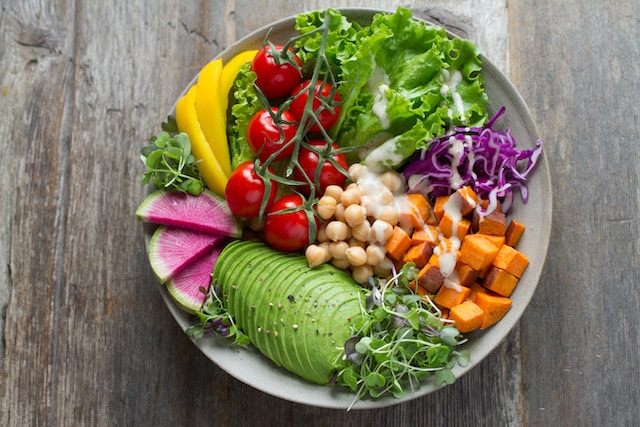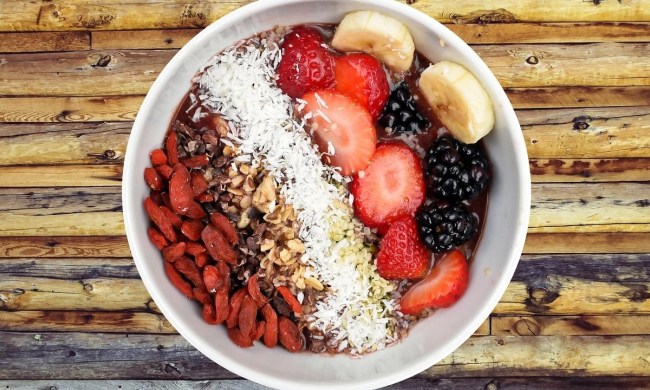As a nutritionist, many new clients come to me sharing the diet trends they have tried that ultimately weren’t sustainable. Clean eating is one of the newest diet trends that everyone is currently enthusiastic about, especially in the U.S., because they keep hearing that it’s healthy and natural. However, there are no regulations around “clean eating,” so many people have their own thoughts on what it actually means.
According to a recent study, “Definitions for the culturally trendy ‘clean’ eating phenomenon vary; whereas some characterize it as natural and healthy, others adopt more restrictive, moralizing, and affectively laden definitions that may reflect disordered eating.”
Some people are just following the trend without understanding what it means, which can lead to unhealthy eating habits. So, what is clean eating exactly? Can it aid weight loss, and is it the best way to eat? Keep reading to find out in this comprehensive guide.
What is considered clean eating?

Clean eating entails eating whole foods such as lean proteins, vegetables, fruits, whole grains, and beneficial fats, while reducing consumption of preservatives, refined grains, additives, added sugars, unhealthy fats, and excessive salt. Avoiding heavily processed foods like packaged snacks, soups, candy, margarine, soft drinks, alcohol, etc., is also recommended.
So you see, it is basically just eating healthy — clean eating is not restrictive, and you don’t necessarily have to cut out all the things you enjoy. Just stick to a healthy diet that works for you and benefits you both physically and mentally.
Is clean eating the only way to be healthy?

Clean eating is a beneficial approach to being healthy, but it is not the only way. Any healthy diet that includes a lot of whole foods along with regular exercise, good hydration, a consistent sleep routine, and stress management is considered a healthy lifestyle.
Does weight loss come easier when you’re only eating clean?

One of the reasons clean eating is trendy is that people are always looking for new, effective ways to lose weight. Now that you understand what it means to eat clean, you should also know that it can help you achieve better results when trying to lose weight.
A 2023 study shows how a dietary purification program focused on whole foods can affect lipid profiles and weight loss. The results indicated significant weight loss and decreased cholesterol.
Eating clean can aid weight loss, but some people may need to have an unhealthy snack, any meal they enjoy, or refeed periodically, or else they will find it difficult to stick to the diet. So don’t be too restrictive with yourself, and you will likely be able to sustain this way of eating long term.
Clean vs. dirty bulking

People often try clean and dirty bulking for the same reasons — to build muscles — but the difference is in the approach. Clean bulking focuses on whole, nutrient-dense foods and your overall health while still putting on size. This option means slower progress, but rest assured, you will gain less fat and more lean muscle, which is ideal.
Dirty bulking, on the other hand, allows you to eat anything you want while being in a calorie surplus. This can include all kinds of food, including refined carbs, junk foods, and fast food. It leads to rapid muscle gain, but the excess calorie also leads to fat gain. You may also experience other adverse health effects, and your cutting phase will need to be that much longer.
So, if you are looking for long-term muscle growth with little to no issues with fat, clean bulking is highly recommended.
Tips for eating clean

Clean eating is not as restrictive or hard as some people make it seem; you just need to take a few steps toward eating a healthy diet. Here are some tips that can help you get started.
- Prioritize whole grains like oats, quinoa, millet, brown rice, buckwheat, etc.
- Load up on fruits and vegetables for added fiber, vitamins, and other essential nutrients.
- Eat less fatty meat and focus on lean beef, salmon, chicken breast, tuna, and other seafood.
- Limit added sugar and reduce your salt intake.
- Watch out for processed foods.
- Add high-quality protein to your diet.
- Stay hydrated and drink electrolytes if needed.
If you can follow these simple tips in addition to an exercise routine, good sleep, and less stress, not only will you be eating clean, you will be living a very healthy life that will make you fit and less prone to health issues like high blood pressure, diabetes, cancer, and obesity.
Frequently asked questions

Are potatoes part of clean eating?
Potatoes are packed with fiber, vitamin C, potassium, and other nutrients, and they are part of clean eating. However, the way you cook them is vital in ensuring they remain clean; you can roast, boil, or bake them, avoiding ingredients like butter or unhealthy oil.
Are eggs considered clean eating?
Eggs contain the nine essential amino acids, and they are also rich in healthy fats, selenium, choline, and vitamin B12. They are considered clean eating as long as you prepare them with minimal ingredients and no unhealthy cooking oils and flavorings.
Is peanut butter clean eating?
This depends on the type of peanut butter; if it is made from just peanuts and a little salt, then it is clean. If, like most store-bought peanut butter, it contains preservatives, added sugars, and hydrogenated oils, it is not clean.




